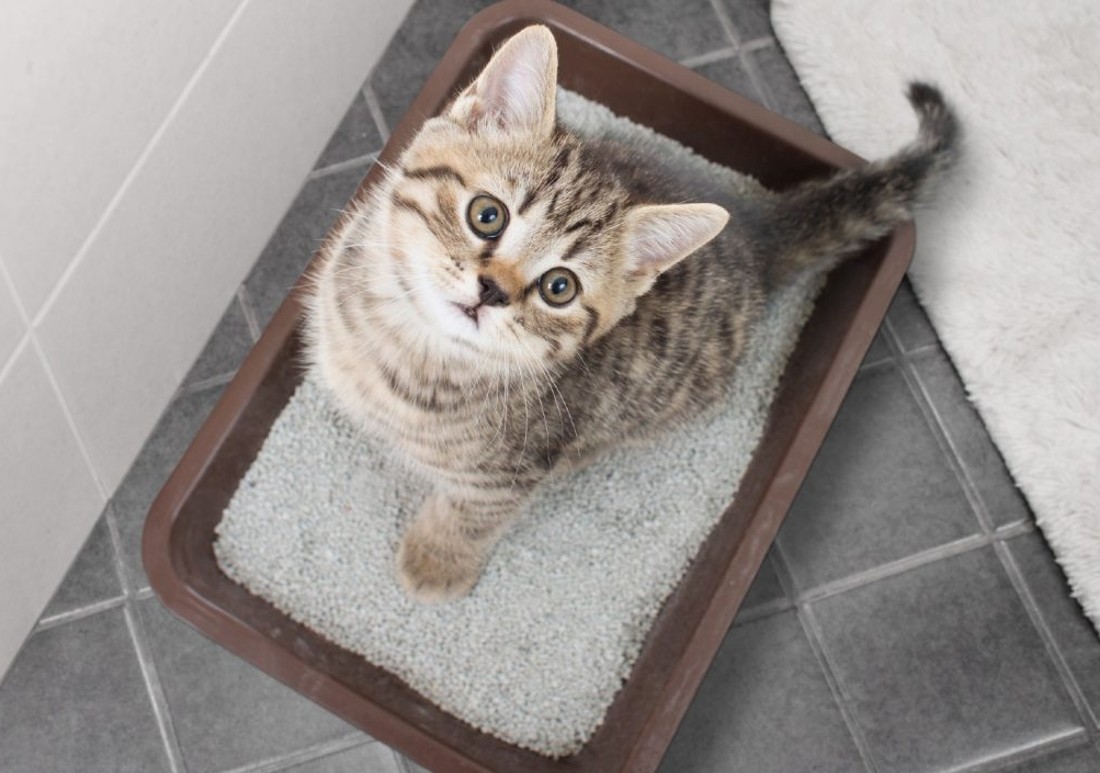Why Is My Cat Eating Litter and How Do I Stop It?

Cats are well-known for their peculiar habits, but some behaviors can raise concerns among pet owners. When a cat begins to eat from their litter box, it can be perplexing and potentially harmful to their health. This behavior, known as pica, is eating items not typically considered food.
Understanding why a cat might start eating litter is crucial for addressing the issue and ensuring the well-being of your feline friend. In this post, we’ll explore the possible reasons behind this behavior, guide you in discouraging your cat from eating litter, and highlight when it might be necessary to seek professional veterinary care.
Why Cats Might Eat Litter
Understanding why cats eat litter involves exploring various health and environmental factors influencing this behavior.
- Nutritional deficiencies: A lack of essential minerals or vitamins in their diet, can drive a cat to seek out alternative sources to satisfy their needs. Anemia, for instance, might compel a cat to ingest litter due to an automatic search for iron.
- Medical conditions: Kidney disease, feline leukemia, and diabetes can lead to increased thirst and urination, which may inadvertently cause a cat to ingest litter particles. Moreover, intestinal parasites can disrupt nutrient absorption, compelling cats to eat non-food items, including litter.
- Behavioral and psychological factors: Boredom or anxiety may trigger a cat to exhibit pica as a coping mechanism. In multi-cat households, stress from social dynamics or competition for resources, such as cat litter boxes, can also play a role.
To discern the root cause, observe your cat for any other unusual symptoms or behaviors and examine their environment for potential stressors. Be mindful of what type of cat litter you use, as clumping or scented litter might attract some cats. If the behavior persists, or there are signs of distress or illness, consulting a veterinarian is necessary to rule out medical problems and seek advice on behavioral modification strategies.
How to Stop Your Cat from Eating Litter
First, ensure your cat’s diet is complete and balanced. Consult with your veterinarian to confirm that your cat receives all the necessary nutrients and consider a dietary adjustment as recommended. If you suspect a medical condition that’s causing pica, addressing the underlying issue with professional guidance is crucial.
Transition your cat to a non-toxic, non-clumping, and unscented litter to minimize the risk of digestive issues or attraction to the litter due to its texture or smell. Keep the litter box clean—a well-maintained box is less appealing for snacking.
Provide ample environmental enrichment. Engage your cat in daily interactive play to alleviate boredom and reduce stress-related behaviors. Ensure they have plenty of toys and regular mental stimulation.
Monitor your cat’s access to the litter box. If you catch your cat in the act of eating litter, distract them with a toy or a game. Consistently redirecting their behavior away from the litter can help break the habit over time.
In a multi-cat household, eliminate competition and stress by providing multiple cat litter boxes in various locations and separate feeding areas. Every cat should have its own resources to prevent rivalry.
If these strategies don’t deter your cat, a more structured behavioral modification plan might be necessary. A consultation with a veterinarian or animal behaviorist can provide a tailored approach to your cat’s specific needs, ensuring the healthiest outcome for your pet.
Importance of a Vet Consultation
When your cat exhibits an unusual behavior, like eating from their cat litter box, it’s necessary to consult with a veterinarian to get to the bottom of the issue. A vet consultation is paramount because it helps identify any underlying medical conditions that may be prompting this behavior. Conditions such as anemia, kidney issues, or deficiencies in their diet can only be properly diagnosed through professional evaluation.
Additionally, a vet can provide valuable insights into whether the cause is behavioral, such as stress or anxiety, which can also lead to pica. Since eating litter carries significant health risks, including gastrointestinal blockage or toxicity from the litter’s chemicals, immediate veterinary assessment becomes critical.
During the consultation, providing the vet with a comprehensive overview of your cat’s behavior, diet, environment, and any recent changes that may have affected them is helpful. Depending on the diagnosis, the vet may recommend diagnostic tests, dietary changes, or behavioral therapies. They may also suggest alternative types of litter that are less appealing or harmful if ingested.
Remember, never try to diagnose or treat your cat’s pica behavior alone. You can only ensure the safest and most effective approach to discourage this behavior and maintain your cat’s health and well-being through professional guidance.
Conclusion
Maintaining your cat’s health and wellness requires vigilance and a proactive approach, especially if they have developed a penchant for eating litter. It’s a multifaceted issue that can have various underlying causes, including dietary, medical, and behavioral factors. To ensure the well-being of your feline friend, it’s vital to address this behavior immediately and thoroughly.
Your Pet’s Best Interest, Always
At Pet Institute, we take pet care seriously. We're dedicated to transparency, impartiality, and the well-being of your pets in every article, review, and recommendation we provide. Our unwavering commitment to these principles ensures that you, our valued reader, always receive reliable and unbiased information. Let us be your trusted guide in the world of pet care and companionship.